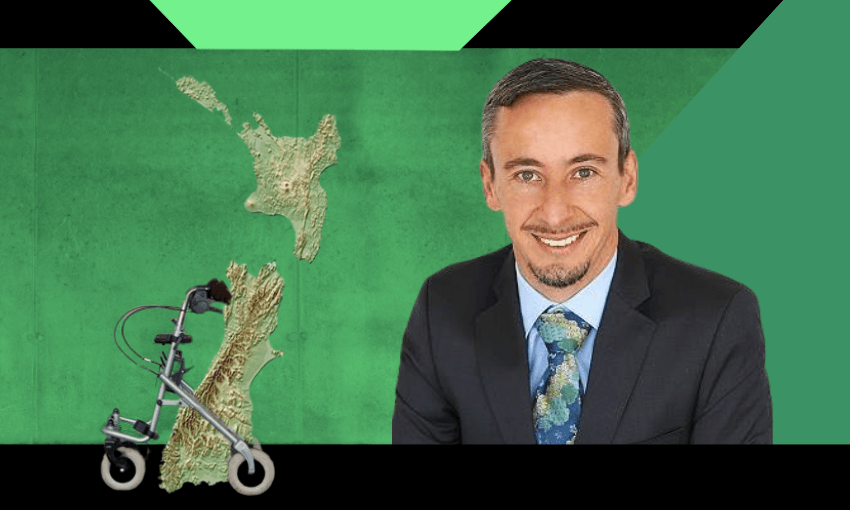Treasury’s chief economic adviser, Dominick Stephens, believes the government’s tax, health and pension settings are untenable in the long term. Something’s got to give, he tells Bernard Hickey on The Spinoff’s economics podcast When the Facts Change.
New Zealand’s ageing population is about to give the government’s finances a serious workout, according to Treasury’s chief economic advisor Dominick Stephens. In a recent speech, Stephens laid out the hard facts about our shifting demographics and what that means for the future of superannuation and healthcare.
With more New Zealanders hitting 65 and fewer people of working age to foot the bill, the pressure on public spending is about to get intense. Stephens points out that “New Zealand has the highest basic pension paid out of general taxation relative to gross earnings in the OECD.” In other words, we’re leading the pack in how much we shell out to pensioners from the taxpayer’s pocket.
Given our health system is also publicly funded, as our population of over-65s grows so does the demand on healthcare services, meaning a bigger chunk of the budget will need to be set aside just to keep things ticking along.
New Zealand’s superannuation system is famously generous – it’s a flat-rate payment, and everyone gets it regardless of how much they earned during their working life or what their financial situation looks like now. That’s quite different from other countries, where pensions tend to be more targeted.
But it’s not all bad – Stephens also acknowledged some positive trends that have helped ease the strain so far. More older people are staying in the workforce with half of 65 to 69-year-olds still working. In addition, our population growth – driven by migration – has broadened the tax base and given the government more cash to work with while low interest rates have made it cheaper to manage public debt.
However, Stephens says any of these factors in isolation won’t be enough to get us off the hook in the long run. “It’s likely to require a range of things to make fiscal policy sustainable over the long term.”
So what kind of changes are we talking about? Raising the retirement age is one idea, tweaking how superannuation payments are adjusted for inflation is another, or the government could bring in more revenue by hiking taxes or introducing a capital gains levy.
None of these options are painless and each comes with its own set of trade-offs that will need to be navigated carefully, but it’s clear the status quo isn’t going to cut it. If we want to keep our universal retirement system in place, some tough decisions need to be made, and soon.
Click here for more episodes Bernard Hickey’s economics podcast When the Facts Change.
